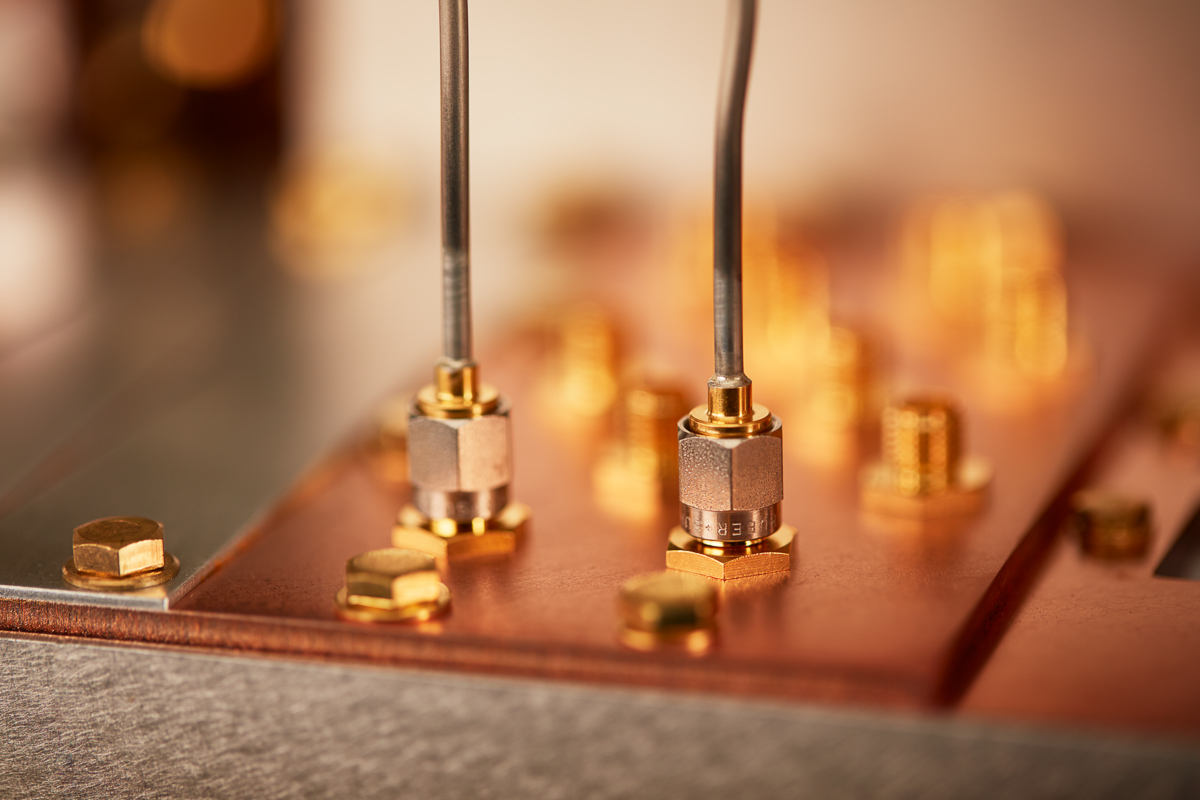
MUNIQC-SC
BMBF
MUNIQC-SC
We are part of the MUNIQC-SC consortium an initiative to build a quantum computer demonstrator based on superconducting circuits
MOTIVATION
Quantum computers promise to be supercomputers of the future. Instead of bits used in classical computers, quantum computers use qubits. The special properties of qubits allow a quantum computer to assume all states that can be represented with the qubits simultaneously. By contrast, classical computers can work with only one of the combinations the available bits can represent per computing step. This means that quantum computers can solve tasks that conventional computers cannot. For example, if we can simulate processes at a molecular level, the behavior of novel medications could be predicted. Quantum computers could also find ways to develop highly efficient battery storage systems or to solve complex problems in traffic management.
APPROACH AND KEY GOALS
MUNIQC-SC was set up to build a quantum computer demonstrator and the technology needed to connect the demonstrator to conventional computers. The project scope includes research into microwave circuits to control qubits, integration methods for superconducting circuits, as well as the development of customized compilers and runtime environments. Research and commercial exploitation of such second-generation quantum technologies requires the use of special low-temperature measurement technology for characterization, testing and quality assurance.
Through a specific research project, we aim to develop, deploy and validate rapid testing setups for easy characterization and examination of cryo-electronic components and superconducting quantum circuits. These types of measurement systems are not available today, creating an obstacle to the research, industrial manufacture and application of modern quantum technologies, in particular superconducting technologies.
What we are doing
Fast characterization of cryo-electronic components for superconducting quantum computers
Based on our unique magnetic cooling technology and our L-Type Rapid platform, we will develop cryogen-free (notably helium-3-free) cryogenic cooling systems. Because of their short cooldown times, these will accelerate individual and mass investigation of superconducting microwave devices, as well as related electronics, at temperatures well below 1 K.
We will develop hardware and software components to enable us to reliably and reproducibly carry out measurements to determine relevant properties of components, while minimizing the investment in time and personnel. Our research will give the MUNIQC-SC partners important capabilities to determine the properties of components developed in the project, like control electronics and qubits, which are essential for building a superconductor-based quantum computer.
Supported by
The MUNIQC-SC project is primarily funded by the German Federal Ministry of Education and Research (BMBF).
